Content
- Causes of a feeling of heaviness in the head and ear congestion, additional symptoms
- Increased blood and intracranial pressure
- Diseases of the organ of hearing
- Head and cervical spine injuries
- Degenerative-dystrophic diseases of the spine
- Diseases of the cardiovascular system
- Cervical myositis
- Meniere's disease
- Tumor processes
- Neurotic disorders and depression
- Malocclusion
- Infectious diseases of ENT organs
- How are the causes of head severity and congestion in the ears diagnosed?
- MRI
- Ultrasound
- Duplex scanning
- Computerized topography of the spine
- Computerized electroencephalography
- Methods and treatment regimens depending on the cause of the ailments
- Video about the causes of ear congestion
Every adult at least once in his life has come across such an unpleasant phenomenon as heaviness in his head. The condition can also be accompanied by increased irritability, clouding of consciousness, decreased concentration, bad mood.
Some people note that with a heaviness in the head, ears become stuffy, dizzy, and in general, cognitive abilities are greatly reduced. This symptomatology can be one-time in nature and be associated with the usual overwork and overvoltage, and may be a manifestation of various diseases and pathologies, which will be discussed in the article.
Causes of a feeling of heaviness in the head and ear congestion, additional symptoms
Heaviness in the head and stuffy ears is a condition that is familiar to many people. If this happens very rarely, then, most likely, a person just needs to have a good rest and recuperate so that everything goes away. An unsatisfactory condition in this case may be associated with overwork, excessive fatigue, an incorrect daily routine and, fortunately, does not pose a threat to human life and health.
However, if this happens periodically, then this serves as a signal of the need to take care of your health. In general, in both situations, the nature of the occurrence of such discomfort in the head is associated with insufficient intake of brain oxygen and stagnation of blood in the collar zone (neck, upper spine, shoulder girdle) and area heads.
Increased blood and intracranial pressure
The most common cause of heaviness in the head and congestion in the ears is increased intracranial and blood pressure. A lot of people suffer from these ailments, and recently there has been a tendency to reduce the age of people suffering from these pathologies.
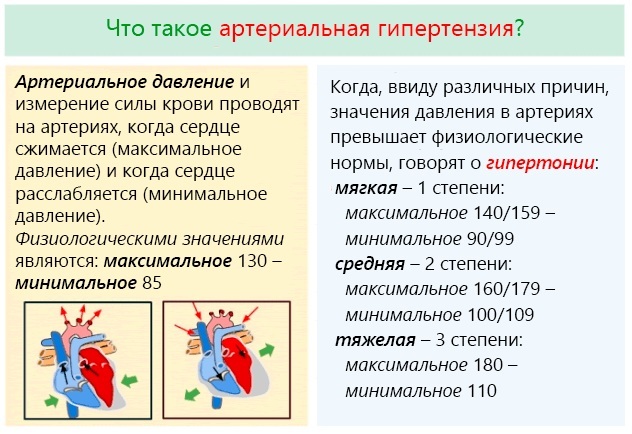
In a healthy person, the normal pressure is 120 to 80 mm Hg. Art. Also, for many people, there may be a "working" pressure that slightly deviates from this norm - within +/- 10 mm Hg. Art., in which they feel normal. An increased indicator is considered to be more than 140 to 90 mm Hg. Art. The reasons for the increase in pressure can be vasospasm, as well as an increase in the total amount of circulating blood.
In addition to heaviness in the head and congestion in the ears with increased pressure, there may be:
- nausea;
- vomit;
- bursting headache;
- hearing loss;
- dizziness;
- violation of coordination of movements;
- fainting (with sudden, violent attacks).
You can track blood pressure indicators at home on your own. To do this, you should purchase a special device - a tonometer, which can be manual (mechanical) or electrical.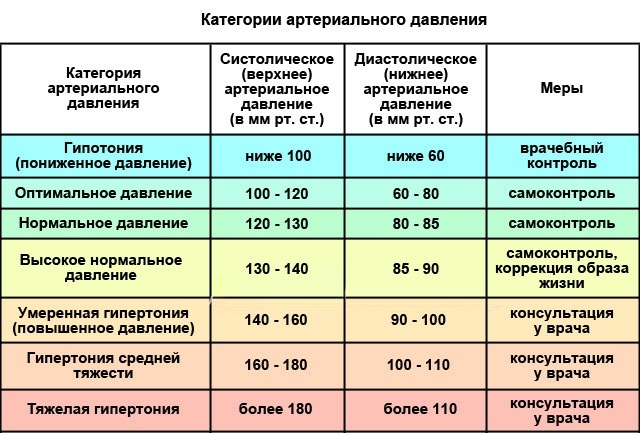
Without medical correction of the condition and constant monitoring, high blood pressure can lead to serious consequences:
- the development of a heart attack - when oxygen suddenly stops flowing to the heart muscle - the myocardium;
- angina pectoris - acute pain in the chest area;
- arrhythmias - a violation of the normal heart rhythm;
- chronic heart failure - deterioration of the heart valves due to increased load on it.
Increased intracranial pressure or intracranial hypertension is another cause of tinnitus and heaviness in the head. Pathology occurs due to excessive pressure of the cerebrospinal fluid (cerebrospinal fluid), tissue fluid, blood, or tumor growth on the pathways of the brain.
Increased intracranial pressure can also be with VSD in combination with high blood pressure. In this case, not only heaviness in the head is more often observed, but also nausea, migraine (occurs often), increased headache towards evening and night. Patients with increased intracranial pressure are often advised to undergo CT and MRI to rule out the presence of tumors and aneurysms (bulging of the artery wall).
Diseases of the organ of hearing
With some diseases and pathological conditions of the organ of hearing of a non-infectious nature, a person may suffer from headaches, congestion in the ears, heaviness in the head.
These include:
- some types of tumors - neurinoma, cholesteatoma;
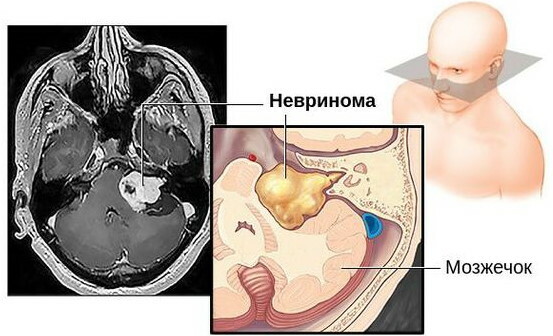
- aerotitis - develops with fluctuations in barometric pressure;
- otosclerosis - associated with changes in bone tissue as a result of metabolic pathologies.
Head and cervical spine injuries
Injury to various organs and parts of the body can also be the reason that the head is often heavy and is tormented by constant congestion in the ears. Of course, most often this happens if the head or cervical spine is injured, but sometimes it can also be more distant parts of the body. (blows to the side, sternum, abdomen, in this case the pain radiates and arises in the head due to pain in another area due to irritation of the nerves endings).
The most common cause of such a post-traumatic syndrome is the so-called whiplash, which is received in accidents and car accidents. This injury is very insidious, since it always catches the passenger or driver by surprise, and the result of the impact may not appear immediately, but after a while. With sudden braking, collision of vehicles, you can get a dislocation of the neck, as a result of which a person will suffer from headaches.
Degenerative-dystrophic diseases of the spine
The spine is the main supporting part of the skeleton, one might say the core of the human body. His health is critical to overall well-being. Heaviness in the head and congestion in the ears are often caused by problems with it. Various pathological disorders in the structural tissues of the spine lead to irritation of the nerve roots and vertebral arteries.

Because of this, blood flow worsens and intracranial pressure increases. Most often, this condition develops with cervical osteochondrosis. A person with this pathology can be bothered by a headache throughout the day, aggravated by turns, non-smooth movements, and bends.
Diseases of the cardiovascular system
In this case, there is a feedback and dependence with high blood pressure, when, as a result of its pathologically high values, problems with the heart and blood vessels develop. In this case, the heart can poorly perform its function of a "pump", which will lead to deterioration of blood circulation, poor oxygen saturation of the brain, as a result of which the pressure will increase, noise, heaviness and pain in the head will appear (most often in the area nape).
Cervical myositis
Cervical myositis is an inflammatory disease of the muscles of the neck that can develop as a result of:
- trauma;
- severe hypothermia;
- prolonged stay in an unnatural position.
On palpation, pain, swelling, and stiffness of movement are noted on the affected areas. In this case, the pain radiates to the back of the head, which causes a feeling of heaviness.
Meniere's disease
Meniere's disease is a disease of the inner ear that is non-suppurative and is caused by an increase in the concentration of endolymph - a colorless liquid that is located inside the membranous labyrinth inner ear.
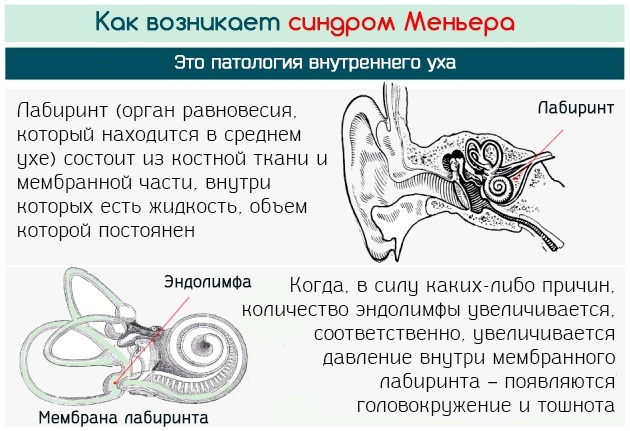
As a result of such an increase in the volume of fluid in the ears, noise occurs, and problems with vestibular apparatus, one-sided deafness develops, a person suffers from dizziness and seizures headache. Fortunately, the disease is quite rare and occurs in no more than two hundred cases per 100,000 population.
Tumor processes
Tumors growing in different parts of the brain put pressure on the adjacent vessels, resulting in headaches associated with heaviness and hum in the ears. There are many types of brain tumors that can be both benign and malignant.
All of them interfere with the normal functioning of the brain, due to which a person may experience vomiting, nausea, uncoordinated movements, blurred vision. If headaches are often accompanied by similar manifestations, then this is a reason to undergo a full examination.
Neurotic disorders and depression
Neuroses and depression directly affect a person's well-being, since mental health is directly related to the health of the physical body. Especially dangerous can be a situation when a person has been in a similar state for years and does not seek help. In this case, he can often be irritated, crying, apathetic or, on the contrary, aggressive, alarmed.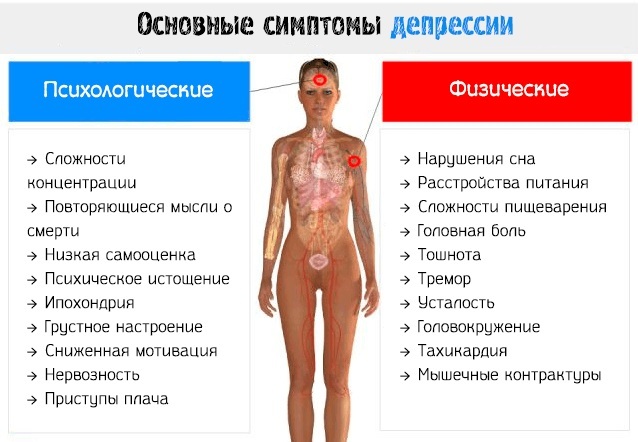
He suffers from insomnia and VSD, pain in various parts of the body, including the head. Often, getting stuck in his experiences, he already in the morning feels a heaviness in his head, weakness and unwillingness to do anything in this state.
Malocclusion
Heaviness in the head and pawing of the ears - it is with such complaints that people with an incorrect bite come to the orthodontist's appointment, when for other reasons other doctors do not detect their pathological condition, although, at first glance, it seems that the connection between cause and effect is not obvious.
However, in reality, problems with the temporomandibular joint lead to a shift in the center of gravity and not entirely correct distribution of the load on the cervical region. Usually, with such problems, headaches torment people for a long time before doctors find the root cause and help solve the problem.
Infectious diseases of ENT organs
Infectious diseases of the ENT organs include a fairly extensive group of inflammatory diseases, which include diseases:
| Middle ear | Otitis |
| Pharynx and tonsils | Angina, pharyngitis, tonsillitis |
| Paranasal sinuses | Rhinitis, sinusitis |
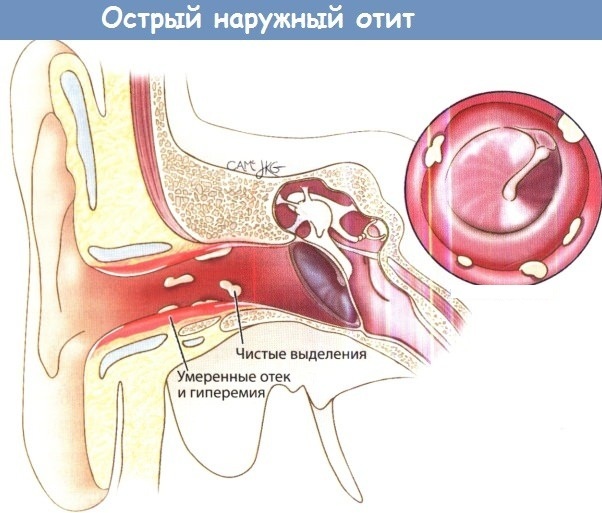 During their course, a person almost always feels severe malaise, accompanied by weakness, headaches, and sometimes an increase in temperature. In the acute period, congestion in the ears is also possible, the appearance of a feeling of heaviness in the head. Usually, if a person observes bed rest and takes the necessary medications, all this unpleasant concomitant symptoms recede as the body recovers and recovers.
During their course, a person almost always feels severe malaise, accompanied by weakness, headaches, and sometimes an increase in temperature. In the acute period, congestion in the ears is also possible, the appearance of a feeling of heaviness in the head. Usually, if a person observes bed rest and takes the necessary medications, all this unpleasant concomitant symptoms recede as the body recovers and recovers.
How are the causes of head severity and congestion in the ears diagnosed?
Heaviness in the head and stuffy ears - with such symptoms, thousands of people around the world come to doctors every day, to find out the cause of your condition and find out how you can improve it and get rid of unpleasant symptoms. The number of diseases that can cause heaviness in the head, congestion and tinnitus is quite large, so you should not immediately panic and think up the worst thing.
It is better to consult a doctor who can objectively assess the condition and direct you to the necessary diagnostic procedures. The examination should begin with a general practitioner who will give directions for tests or with a neurologist, as well as, if necessary, contact an ophthalmologist, ENT, cardiologist. If necessary, specialists can refer patients for MRI, ultrasound, CT, duplex scanning and computed electroencephalography.
MRI
Magnetic resonance imaging is performed to study the state of blood vessels, internal organs, brain, lymph nodes and nervous system.
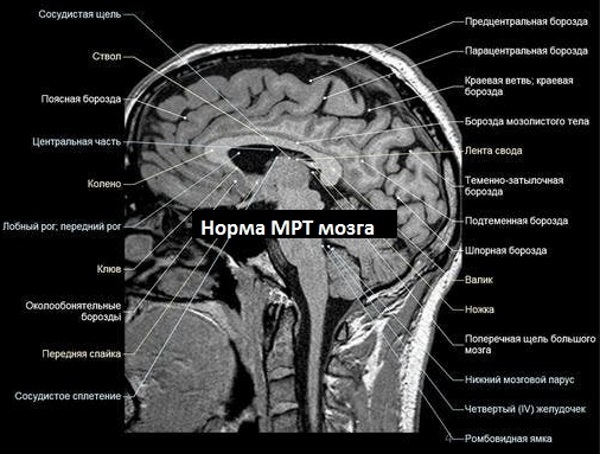
When examining the brain, the tomograph clearly shows the view of the brain and spinal cord and allows you to identify tumors, aneurysms, and spinal hernias.
Ultrasound
Ultrasound helps to identify pathologies such as:
- hydrocephalus;
- cerebral hemorrhage;
- abscesses;
- encephalitis;
- meningitis;
- tumors;
- violation of the conduction of cerebrospinal fluid spaces.
MRI better shows the overall volumetric picture, for example, aneurysm or tumor. Ultrasound, on the other hand, makes it possible to assess the state of blood flow to a greater extent.
Duplex scanning
Duplex scanning is a special technique for examining the state of blood vessels and blood flow in them, which includes 2 modes - Doppler and B-scan (in fact, a conventional ultrasound). This method is the most progressive in comparison with the previously used angiography, in which a contrast agent is injected into the artery and then X-ray is taken.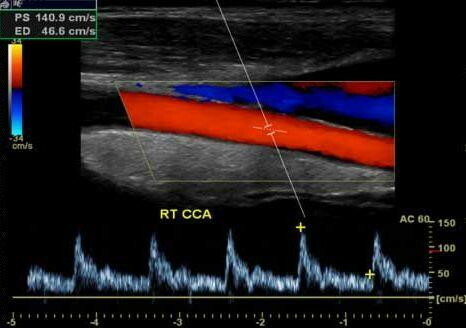
With duplex scanning, not only images are obtained, but it is also possible to assess the blood flow in the vessels by displaying a dynamic image on the screen. The method allows you to identify the narrowing of the arteries of the brain, to identify violations of the venous outflow.
Computerized topography of the spine
Heaviness in the head, noise and ringing in the ears, their congestion can also occur due to problems with the spine. To find out the exact reasons, patients may be assigned such an examination as computer optical topography of the spine.
It allows you to identify postural disorders, scoliosis, pelvic distortions, kyphoscoliosis and other structural changes in the musculoskeletal system due to which can disrupt the normal blood supply to the brain and cause an uncomfortable condition associated with headaches and heaviness in her.
Computerized electroencephalography
An electroencephalogram is a recording (recording) of the electrical activity of the brain.
This examination is carried out when:
- headaches of various nature;
- convulsions;
- fainting;
- traumatic brain injury;
- infection of various parts of the brain;
- general disorders of the nervous system;
- suspected tumors.
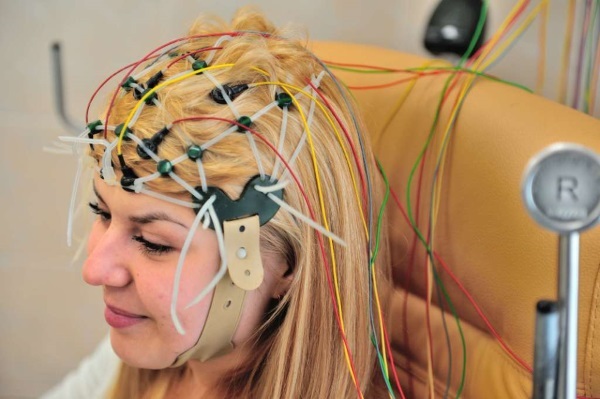
All of these pathologies are accompanied by certain changes in the bioelectrical activity of the brain, which, in fact, is recorded during the EEG.
Methods and treatment regimens depending on the cause of the ailments
To eliminate heaviness in the head and congestion in the ears, you can use non-steroidal anti-inflammatory drugs, antispasmodics, analgesics, which will help to stop discomfort. However, such symptomatic treatment will not eliminate the cause of these uncomfortable sensations.
If headache, congestion and tinnitus, heaviness in the head are not the result of overwork, then you should look for the root cause and apply the methods and treatment regimens:
- with hypertension and increased intracranial pressure, drugs that lower blood pressure, diuretics should be taken on an ongoing basis. Self-massage of the neck, occiput, temporal region, crown of the head helps to eliminate headache with these pathologies;
- infectious diseases of the upper respiratory tract should be treated with cold medications that help ease the course of the disease and eliminate the heaviness in the head;
- for problems with the cervical spine, manual therapy, physical education are recommended;
- depression and neurosis require treatment with antidepressants and sedatives;
- a malocclusion should be corrected in time as the child grows, but today it is not too late to do this even after entering adulthood.
- for vascular diseases and cardiac problems, supportive drugs are most often prescribed that strengthen the walls of blood vessels and the heart, as well as blood thinning drugs;
- the protocol for the management of brain tumors, especially with their rapid growth, often involves surgical intervention with a course of subsequent rehabilitation of the patient.
If a person often experiences heaviness in the head, his ears and migraine pain are blocked interferes with leading a normal life, then this is a reason to consult a doctor and go through the prescribed examination.
You should not endure and suffer, taking painkillers, which only relieve unpleasant symptoms, but do not solve the problem. Timely diagnosed pathologies are easier to treat, which allows a person to return to a normal active life and stop experiencing discomfort.
Video about the causes of ear congestion
Why ears are stuffed up:



